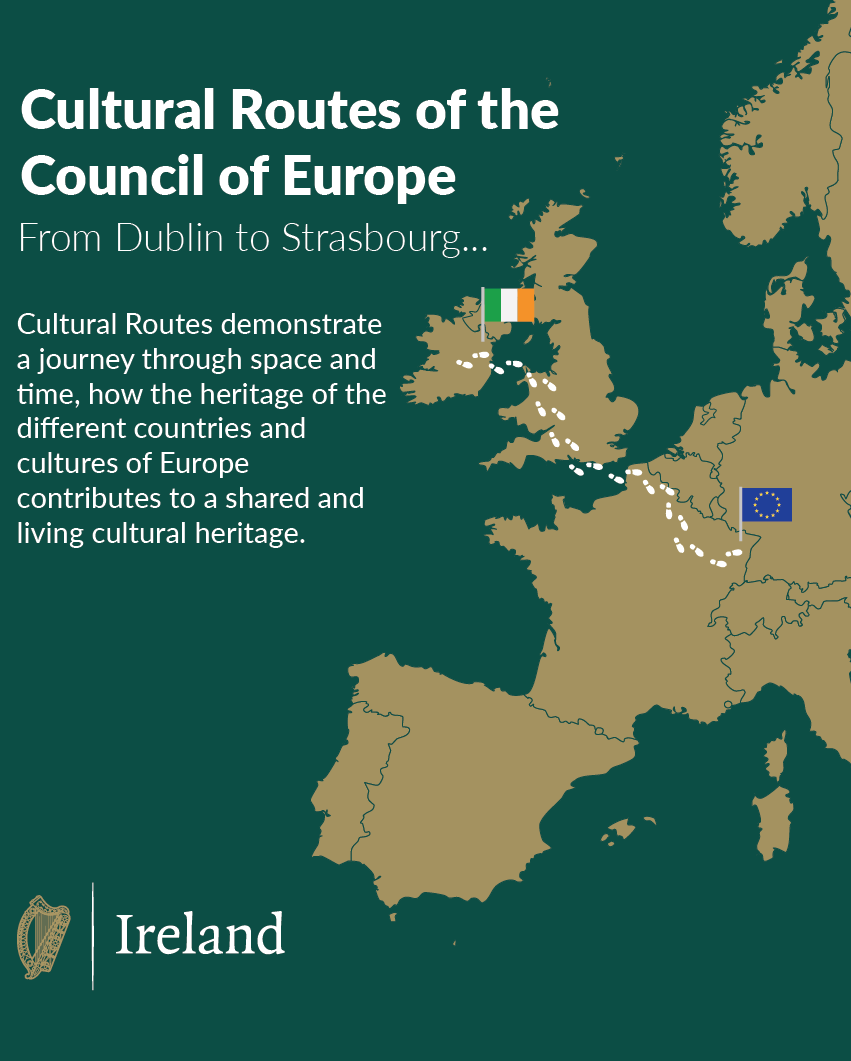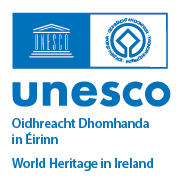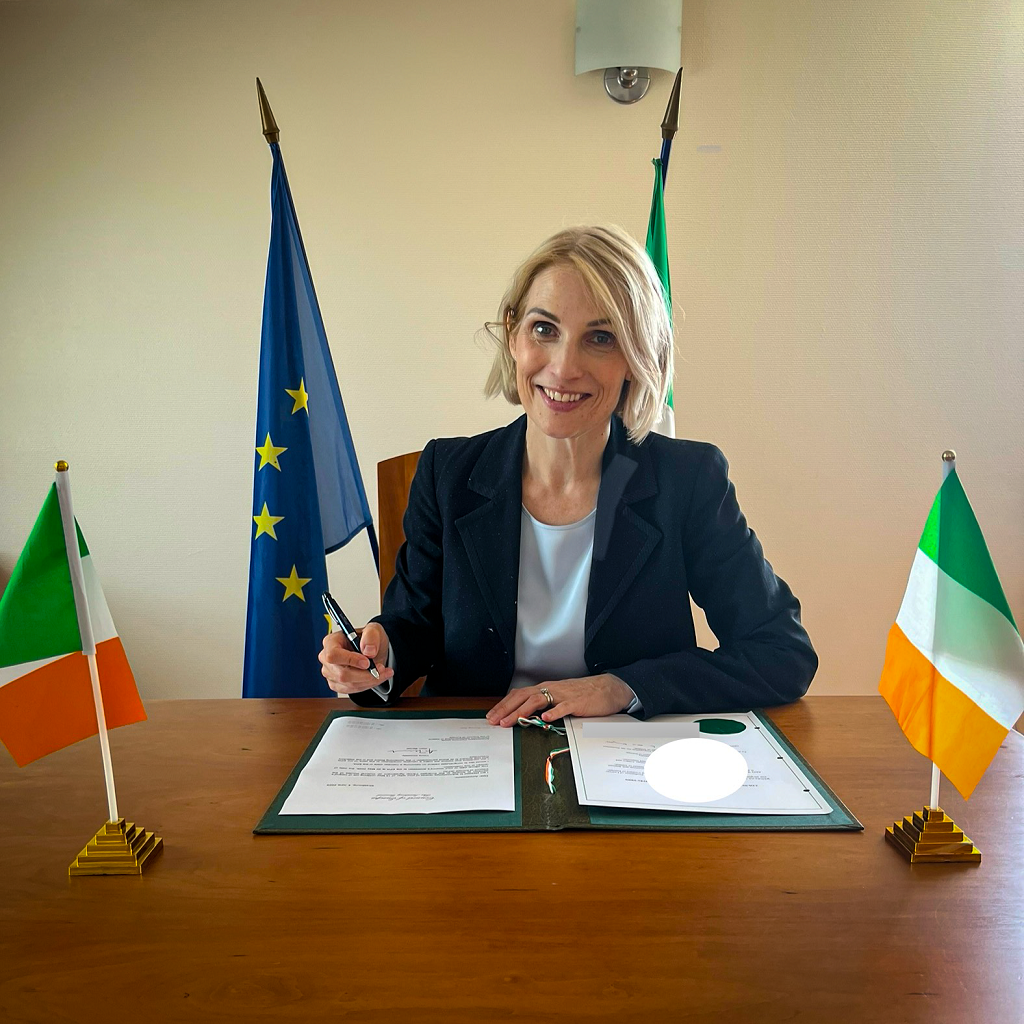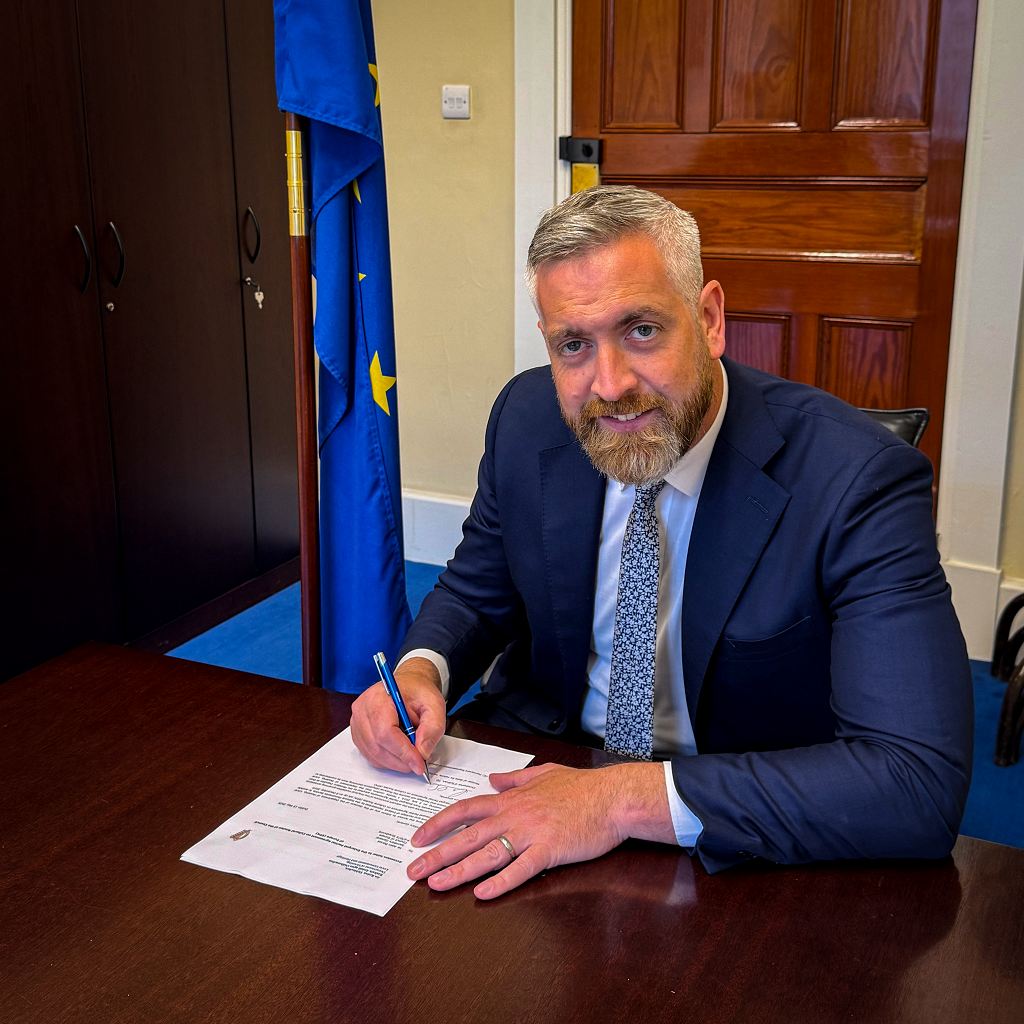Ireland officially joins the Cultural Routes of the Council of Europe
Posted on 6 août 2025

Cultural Route membership reflects strong progress in protecting and conserving heritage outlined in latest strategic update report
Ireland has strengthened its heritage engagement with Europe by formally joining the Cultural Routes of the Council of Europe. This marks the start of a formal active role for Ireland within this important European network, which connects culture and heritage tourism across borders, increases awareness of a shared European cultural heritage and promotes sustainable cultural tourism. Ireland’s membership will be co-ordinated by the National Monuments Service and the Department of Foreign Affairs and Trade.
Minister for Housing, Local Government and Heritage, James Browne, TD, remarked:
“The existing forty-eight Cultural Routes of the Council of Europe illustrate Europe’s shared and diverse history and heritage. I am delighted that Ireland has now formally joined this wonderful initiative, and look forward to seeing increased participation by Ireland in existing and emerging Cultural Routes in the years ahead.”
The Cultural Routes were launched in 1987 by the Council of Europe as a model for international co-operation in the field of culture, tourism and heritage between national, regional and local authorities.
Existing Cultural Routes across Ireland include:
- The Viking Routes
- The European Cemeteries Route
- The European Route of Industrial Heritage
- The European Fairy Tale Route
Ireland will now look at joining and co-developing new routes, including a transnational Norman Route as an outcome of the 2027 The Year of the Normans – People of Europe initiative, announced several months ago.
Minister of State with responsibility for Nature, Heritage and Biodiversity, Christopher O’Sullivan, TD, added:
“Joining the Cultural Routes of the Council of Europe provides Ireland with new opportunities to showcase our heritage and connection to our European partners. It will also offer opportunities to improve co-operation and networking with our partners across Europe. Ireland’s cultural heritage, in all its facets, is a magnificent resource and a source of particular pride that has had a major impact internationally.”
The Cultural Routes aim to promote European heritage and encourage sustainable tourism. The routes connect countries, regions and local communities and cover different themes: from architecture and landscape to religious influences, from gastronomy and intangible heritage to the main figures of European art, music and literature. The programme also represents important shared European values, such as democratic coexistence, human rights including artistic freedom, cultural democracy, diversity, mutual understanding, cross-border European cooperation and knowledge exchange.
Role of Ireland
The National Monuments Service (NMS) will represent Ireland at meetings of the Governing Board and the Annual Board of the Enlarged Partial Agreement (EPA) and will have the right to vote in the assessment of new or renewed cultural routes. The Department of Foreign Affairs will represent Ireland on the EPA’s Statutory Committee.
Ireland’s official membership of the Cultural Routes is an example of the strong progress being made in enhancing international co-operation and knowledge-sharing, including with partners and bodies across the United Kingdom, the European Union and globally through the United Nations. This is one of the notable achievements outlined in a recently-published update report on Ireland’s national heritage strategy, Heritage Ireland 2030. The strategy sets out a comprehensive framework for the protection, conservation and management of Ireland’s heritage over its lifetime and beyond.
The update report reflects the increased Government investment and supports across all forms of heritage that have underpinned the strategy since its launch in 2022. They also reflect the central importance of heritage to our society, well-being and economy, and the challenges and opportunities that face our heritage in a fast-changing world.
Other notable achievements described in the 2024 action updates include the expansion of heritage teams across our 31 Local Authorities, and support for over 1,000 local heritage projects and initiatives through government community heritage grant schemes as well as enhanced future-proofing of nature and heritage as part of strategic national planning and investment programmes, including to protect heritage against climate change.
Further Information
- More information about the Cultural Routes can be found on the Council of Europe website and on the World Heritage website.
- More information on the latest Heritage Ireland 2030 Delivery Update can be found here.
- More information on the Council of Europe, the continent’s leading organisation for the protection of human rights, and Ireland’s role in it can be found here.


